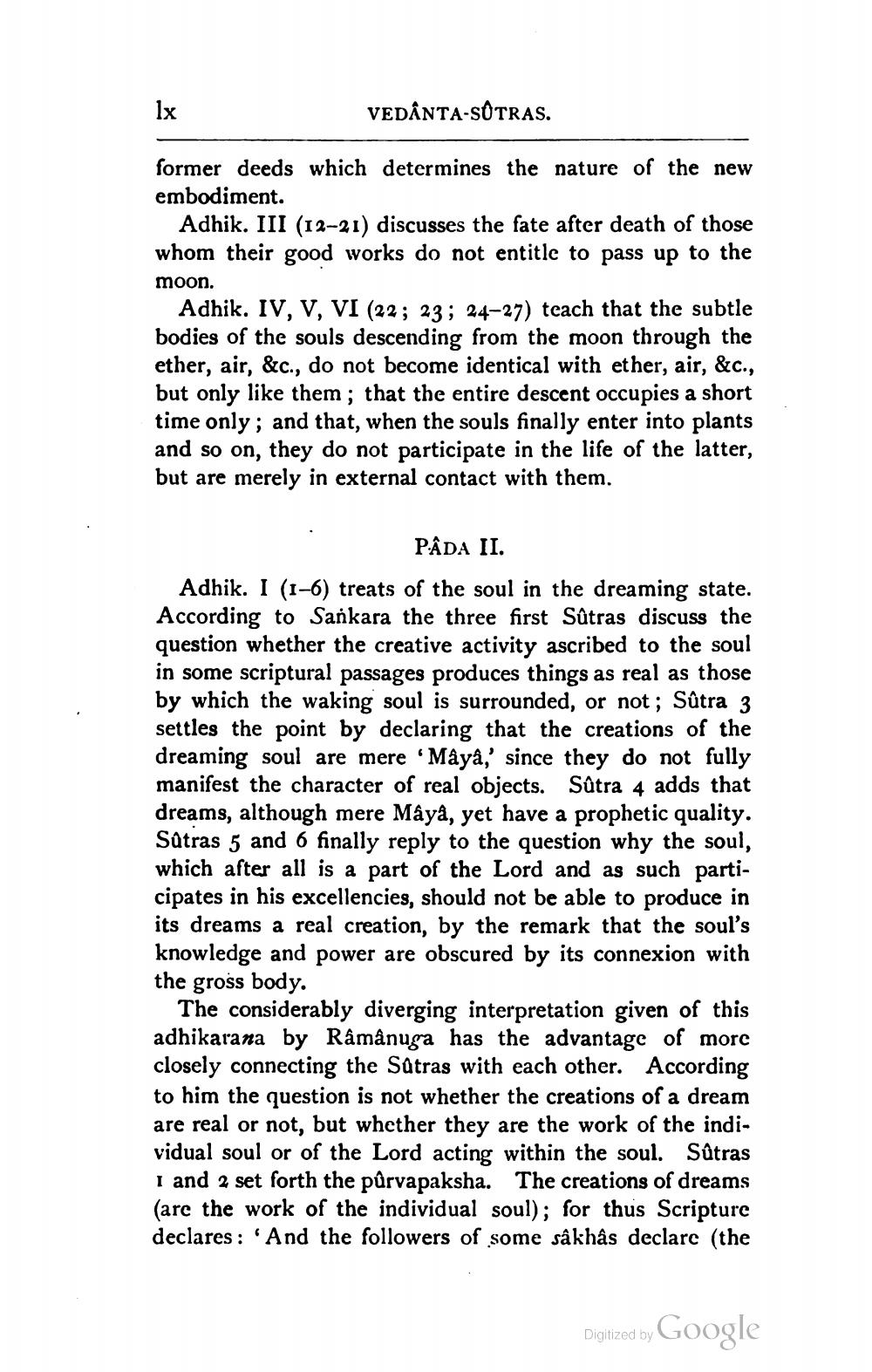________________
VEDÂNTA-SOTRAS.
former deeds which determines the nature of the new embodiment.
Adhik. III (12-21) discusses the fate after death of those whom their good works do not entitle to pass up to the moon.
Adhik. IV, V, VI (22; 23; 24-27) teach that the subtle bodies of the souls descending from the moon through the ether, air, &c., do not become identical with ether, air, &c., but only like them; that the entire descent occupies a short time only; and that, when the souls finally enter into plants and so on, they do not participate in the life of the latter, but are merely in external contact with them.
PÂDA II.
Adhik. I (1-6) treats of the soul in the dreaming state. According to Sankara the three first Sûtras discuss the question whether the creative activity ascribed to the soul in some scriptural passages produces things as real as those by which the waking soul is surrounded, or not; Sûtra 3 settles the point by declaring that the creations of the dreaming soul are mere "Mâyâ,' since they do not fully manifest the character of real objects. Sûtra 4 adds that dreams, although mere Maya, yet have a prophetic quality. Sútras 5 and 6 finally reply to the question why the soul, which after all is a part of the Lord and as such participates in his excellencies, should not be able to produce in its dreams a real creation, by the remark that the soul's knowledge and power are obscured by its connexion with the gross body.
The considerably diverging interpretation given of this adhikarana by Râmânuga has the advantage of more closely connecting the Satras with each other. According to him the question is not whether the creations of a dream are real or not, but whether they are the work of the individual soul or of the Lord acting within the soul. Sûtras I and 2 set forth the purvapaksha. The creations of dreams (are the work of the individual soul); for thus Scripture declares: 'And the followers of some sâkhâs declare (the
Digitized by Google




